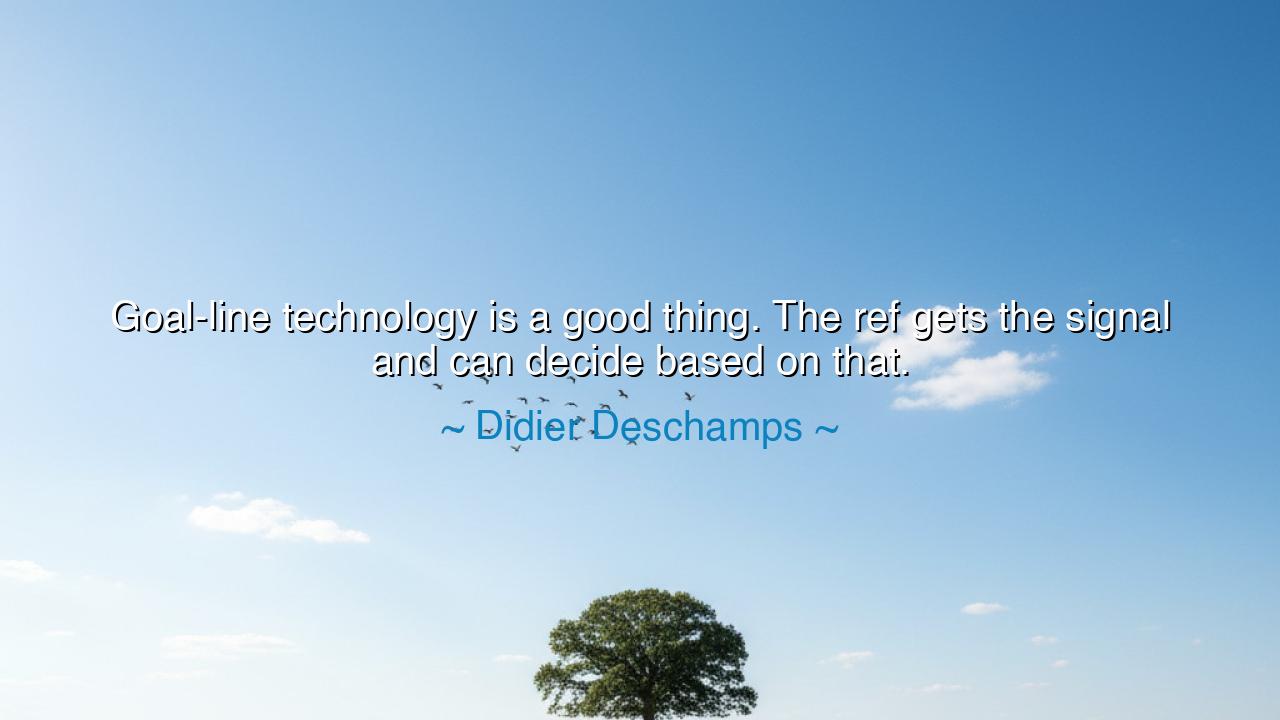
Goal-line technology is a good thing. The ref gets the signal
Goal-line technology is a good thing. The ref gets the signal and can decide based on that.






Hear, O lovers of the game, the words of Didier Deschamps, champion as both player and manager, who declared: “Goal-line technology is a good thing. The ref gets the signal and can decide based on that.” In this brief saying, wrapped in the language of football, lies a timeless reflection on justice, truth, and the aid of technology in the pursuit of fairness. For what is the game of sport, if not a mirror of life itself—filled with struggle, uncertainty, and the constant demand that judgment be true?
In ages past, the referee stood alone, his eyes the final arbiter, his decision beyond appeal. Yet even the most vigilant of men is fallible. A ball crossing the line by inches, a moment too swift for human sight—these became the seed of endless disputes, remembered in bitterness more than in glory. Deschamps speaks, therefore, not of weakness, but of wisdom: that the hand of man may be guided by the signal of the machine, not to replace his judgment, but to strengthen it.
Consider, O listener, the tale of the 1966 World Cup Final. England struck a shot against West Germany that struck the crossbar and bounced near the line. The referee, uncertain, awarded the goal, and to this day, half a century later, men argue whether the ball crossed fully or not. That single moment changed the course of a tournament and the memory of nations. Had goal-line technology existed then, truth would have spoken with clarity, and the legends of injustice would not still linger. Thus, Deschamps points to the power of technology to heal the wounds of doubt.
Yet mark this well: he says not that the machine rules, but that the referee decides. The signal informs, but judgment remains human. Here is a deep wisdom: technology is a tool, but the soul of decision must rest with man. For to surrender wholly to machines is to empty sport of its spirit; but to reject them entirely is to court chaos and discord. The balance lies in harmony—human authority illuminated by technological truth.
This principle echoes beyond football. In courts of law, in governments, in science, men and women wield instruments that reveal more than human senses can. Telescopes show the stars, microscopes unveil the hidden world, computers sift vast oceans of data. Yet always the decision—the choice of how to act, what to judge, whom to trust—remains with human conscience. Technology may give the signal, but man must bear the responsibility.
What lesson, then, must we draw from Deschamps’ words? That in life, as in sport, we must neither scorn innovation nor surrender to it. Let technology aid us, let it reveal the truth where our eyes fail, but let us never abandon the weight of our own judgment. For it is in the union of wisdom and innovation, conscience and clarity, that fairness is secured and justice upheld.
Therefore, O seeker, carry this counsel into your own path. When you stand as judge in matters small or great, do not fear the tools that can sharpen your vision. Accept them as allies, not masters. And when the signal comes—whether from machine, from counsel, or from the whisper of truth within—decide with courage. For fairness is not born from the machine alone, nor from man alone, but from their harmony. And as Deschamps declared, this harmony is indeed a good thing.






AAdministratorAdministrator
Welcome, honored guests. Please leave a comment, we will respond soon